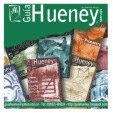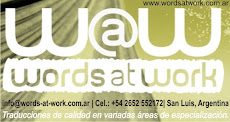by Lorena Avila Cantisani
Correspondent in Spain
soydeargentinacom@hotmail.com
I want to share with our readers the experience of Biocultura (Ecological Products and Responsible Consumption Fair), an event which took place last March in Valencia (Spain).
During the fifties, the “green revolution” came together with fertilizers and man-made insecticides, and we were told hunger would soon come to an end; nowadays, the same argument is used to introduce transgenic foods. A transgenic or genetically modified (GM) food is a living organism which has been artificially created by manipulating its genes. For example, are we told how wine from a foreign country is produced? Are we told about people’s working conditions? Do we ever ask ourselves why products from far-away countries are cheaper than those produced locally? Today, at the beginning of the 21st Century, our products are not as competitive as those produced abroad, where producers may not have decent conditions which allow them to live on their work, and do not owe the land – which are property of multinational companies, like Monsanto and Novartis, among others.
If money rules the world, why not using it as a tool for social transformation instead of using it as an end in itself? Responsible consumption, also called sustainable, conscious or critical consumption, encourages us to think about various issues when it comes to spending our money. The responsible consumer chooses the option which less affects the environment in a negative way, and the one with the most positive effect on society.
Pablo Chamorro, Education Chief for Greenpeace Spain, states that: “those minimal choices, together with the choices made by millions of people will influence the way of making business, producing foods, and respecting human rights”. Another face of responsible consumption is the one involving a consumption reduction, and just buying what is necessary, not being influenced by advertising and superfluous needs (i.e. asking ourselves if we really need to buy what we buy). Toni Lodeiro, author of the book “Consumir menos, vivir mejor”(Buying less, Living better) says: “Buying is a way of participating and stating our opinion. When we buy, we choose the values behind a company, and support their activity through our purchase.
Each purchase is a vote. What would happen if we all chose to consume ecological products? What would happen if we all stopped buying products made by contaminating companies or companies exploiting children? As consumers and customers, we all have a relation with money and are responsible for the type of society we are shaping through our economic choices. The documentary called “Comprar, tirar, comprar” (To buy, to throw away, to buy), by Cosima Dannoritzer, has aroused criticisms to the consumer society. The film deals with the secret story of Programmed Obsolence. “Obsolence works with the creation of artificial needs thanks to which an object of consumption starts to be seen as old or outdated by buyers”.
Each time we buy or consume a product or a service, we are influencing the market. In many cases, the difference between two options is just lack of information. We must gather data and arguments in order to save on our consumption or to make sensible buying choices. Act through the way you buy!



